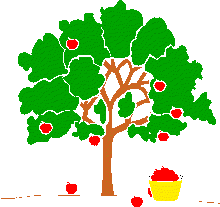A few people have asked about the blog; How do I decide what to write, why I picked a pseudonym, why "Appleseed" and why I picked the title "Going the Distance". This is my attempt to answer those questions.
For starters, once I had decided to write a blog about my MBA journey I had to decide what the "scope" was going to be. From reading several other blogs and thinking about what I found useful and what I found useless/annoying I came to the conclusion I would try my best to keep the blog focused specifically on the MBA. By that I mean the classes, the leanings and the activities. I would try to keep my own personal opinion and circumstances at bay, but of course, everything being equal, one cannot help but have some bias. I would try not to post niche news article or other items (i.e. IT articles that were interesting, but only relevant to a given year) that would date the information and make it hard for people down the road to navigate the blog. I would commit to writing once a week to keep things regular and to keep myself motivated. It would only be 52 entries for the year and by keeping the blog sharply focused, it would be relatively easy to know what to write. Finally, I would post date items if required to keep the timeline authentic because this too conveys information. This made it much easier to blog even during the busiest of times.
Then I started to think about what I as the author should call myself. The question came to mind, "what is in a name?" When I began to consider this idea I realized a name means a lot. Depending on my name a reader would make certain conclusions about me even before reading the information I was providing based on their background and past experiences. This in turn would affect how they would interpret what I had written. Consider the following names for a moment:- Achmed Mohammed
- Arjun Singh
- Deep Sivakumar
- Jeff Williams
- Antoni Lombardy
- Frederich Schneider
These names may not "mean" anything to you, but you might be able to make a reasonable guess as to where the background or ancestry of these names may be and that would be enough to "taint" or "colour" the information these individuals might author if but subconsciously. By choosing a pseudonym I could avoid this problem all together.
Therefore, I decided a pseudonym was best as I didn't want my name to interfere with what people were taking away from my blog. After a few nights of brainstorming the idea of a "seed" struck me. Essentially that is what I would be offering people. Information on the "idea" of taking a MBA. This "idea" was essentially a "seed" and that "seed" could grow, bear fruit and offer more "seeds" to others or not.
The idea of the apple seed sprang to mind quickly afterwards. The apple has been depicted as the "fruit of knowledge" from the Bible. It was an apple that supposedly hit Isaac Newton in the head, which resulted in his theory of gravity. Apple seeds sprout, grow into trees and, after few seasons, bear fruit for many years afterwards. These apples contain seeds, which can in turn repeat the process. This began to mirror what I saw in my blog and thus "Appleseed" was born. In addition, I decided not use any other "picture" other than that of an apple, apple tree or apple seed.
To further clarify this idea I found three quotes from philosophers/writers/figures-of-significance in three very different centres of the world: One from Europe, one from North America and one from Asia. They are at the bottom of the blog and I use them as part of my signature when replying to people who e-mail me, but I will post them here again:
“Everyone who enjoys thinks that the principal thing to the tree is the fruit, but in point of fact the principal thing to it is the seed. -- Herein lies the difference between them that create and them that enjoy.” - Friedrich Nietzsche
“Think twice before you speak, because your words and influence will plant the seed of either success or failure in the mind of another.” - Napoleon Hill
"If we should be blessed by some great reward, such as fame or fortune, it's the fruit of a seed planted by us in the past. " - Bodhidharma
I hoped this would help to cement the idea of the "seed" and bridge any cultural/philosophical gaps between my readers and myself. The use of a pseudonym would also leave me with some of my privacy.
The title was a different matter. I had another title, but it just seemed too unoriginal and it didn't encompass what I had hoped it would. So I kept searching. I came to rest on "Queen's MBA: Going the Distance" because it said it all. The symbolism seemed to fit both literally and metaphorically: (1) It was a blog about the Queen's MBA, (2) I was literally travelling a large distance to complete the program and (3) I saw the one year MBA program as a journey to be completed that was similar to hiking a long trail or climbing a mountain. Therefore, "Queen's MBA: Going the Distance" it would be!
I hope this has clarified a little bit more about this blog and conveyed the thought, care and dedication that went into creating it. With that I will leave you with one final quote that I like so much I am adding it to my three others:
"Words are things, and a small drop of ink, falling like dew upon a thought, produces that which makes thousands, perhaps millions, think." – Lord Byron
